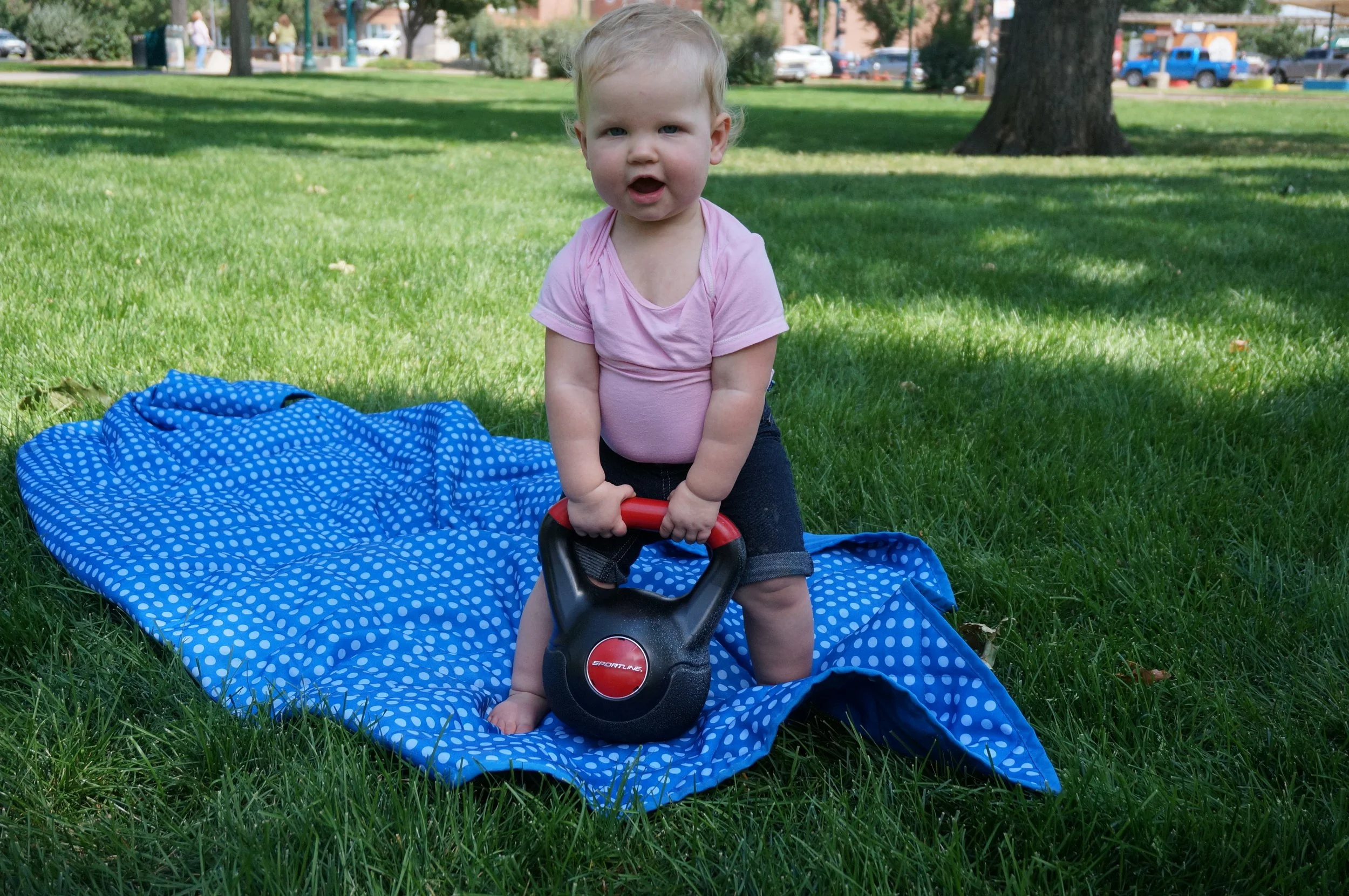Lessons from school Part 1 - Growth Mindset
A million years ago when my older one would mimic everything I did <3
Since the world work in mysterious ways, my pivot back to teaching has taught me so much about how to better help my training clients. I took the position as a special education teacher when we moved to Leadville so that I would have the same schedule as my girls. They don’t have school on Fridays and it’s exactly as amazing as your would imagine. After my first year back in the classroom, I was asked to teach Health class and manage a large grant to outfit a gym for our students. Don’t have to ask me twice! Now in my third year, so many of the lessons that I teach to my high schoolers are things that wasn’t able to put into words for my clients back at The Alley Gym, but are such important concepts to internalize. So, sharpen your pencil because here is the first lesson that I’m pulling from the classroom and hoping that you don’t decide to take a nap or spend the whole class on your phone. Man, teens are a rough audience.
Dr. Carol Dweck, a psychologist at Stanford University, coined the terms growth mindset and fixed mindset to describe the way people think about their abilities and potential to grow. A growth mindset is the belief that your physical, mental, emotional, and baking abilities can improve and develop over time with effort, practice, and some grit. The opposite viewpoint is a fixed mindset where you believe your abilities are static and cannot be changed ie. “I’m bad at math.”
In simpler terms, if you have a growth mindset, you believe that sucking at something isn’t a bad thing but rather a chance to grow. Think about how many times you haven’t done something because you’re not already good at it? For me, this still happens on a pretty regular basis. A growth mindset is crucial for overcoming obstacles and staying motivated, especially when the journey gets tough.
Why a Growth Mindset Matters for Your Health Journey
1. Embrace Challenges as Opportunities to Grow
If you’ve ever found yourself intimidated by a new workout or frustrated when things don’t go as planned, you’re not alone. Many people with a fixed mindset avoid challenges because they fear failure or believe they’re not "naturally good" at something. But here’s the catch: challenges are where the magic happens.
When you intentionally practice a growth mindset, you start to see challenges as opportunities for growth, not dead ends. For example, when you walk up to that loaded deadlift barbell, instead of thinking "Fuuuuuck," you can reframe that thought to, "I’m still learning how to do this, and with practice, I’ll get stronger." This mindset shift helps you stay motivated even when the going gets tough.
2. Learn from Setbacks Instead of Giving Up
In any fitness journey, setbacks are inevitable. Whether it’s a missed workout, an injury, or a temporary slip in your eating habits, setbacks can feel discouraging. But with a growth mindset, you understand that these setbacks don’t define your ability to succeed. Rather than seeing them as proof that you can’t achieve your goals, you see them as part of the learning process.
For instance, if you miss a week of workouts because of illness or travel, instead of thinking "I’ve failed," you can reflect on what caused the setback and plan for how to adjust. Maybe you’ll need to be more proactive about scheduling workouts or finding ways to stay active while traveling. In a growth mindset, every setback becomes an opportunity to adapt and improve.
3. Celebrate Progress, Not Perfection aka All or Something
In today’s world, it’s easy to get caught up in comparisons when we spend our lives on social media watching everyone’s highlight reels. But a growth mindset teaches you to value the process of improvement over perfection. Finding joy in the journey.
Instead of only celebrating a milestone like a 10 pound PR on your back squat or running a 5K, a growth mindset encourages you to celebrate every small victory along the way. Maybe your back has been feeling strong in your lifts or went out for consistent runs this week. These small improvements are the true markers of progress and are all small votes for the kind of person you want to be.
When you embrace an all or something mindset, you start to see that every step you take forward, no matter how big, is setting you up for a lifetime of adventure.
How to Cultivate a Growth Mindset
Building a growth mindset doesn’t happen overnight and it’s not easy. Most of us are not built to enjoy the suck. But with some intentional practice and some self-talks shifts, we can start to quiet the fixed mindset chatter. Here are some steps to take on the road to building a stronger growth mindset:
Reframe Negative Thoughts: When you catch yourself thinking, "I can’t do this," try replacing it with, "I can’t do this YET."
Focus on Effort, Not Just Results: Instead of only celebrating your end goals, acknowledge the effort and dozens of tiny steps along the journey.
Embrace Challenges: Rather than avoiding difficult exercises, tackle them head-on as opportunities to grow. The harder something feels, the more potential there is for improvement.
Learn from Mistakes: If you don’t rock it right away, view it as a lesson. What can you adjust next time? What did you learn that will make you stronger? It’s all just data points along way.
Building a growth mindset isn’t just about your health. It affects how we approach every aspect of our lives. It affects our internal dialog, how our kids will take on challenges someday, and how often we show up for adventure. LFG.
